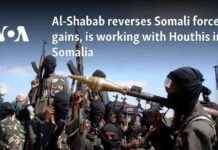Malta may have taken some political practices from the British, but the way they handle general elections is quite different. Nationalist MP Ryan Callus was chosen to be part of a team observing the UK general election on the ground. As he roamed around London with other observers on election day, he noticed several distinctions between the UK and Malta’s election processes.
One major difference Callus pointed out was the absence of police and campaigners at British polling stations. Unlike Malta, where multiple candidates from the same party run for election, the UK has shorter ballot sheets with only one candidate per party. Callus also observed that there were no election posters or billboards in London, making it seem like a normal day rather than an election day.
Throughout the day, London’s polling stations remained quiet, but Callus anticipated larger crowds in the evening after work hours. As part of a team of observers from various Commonwealth and British Isles countries, Callus visited polling stations to assess the election process. He noted that polling stations in London were conveniently located close to each other, possibly to accommodate voters who prefer to walk to their polling station.
Callus also observed that foreign policy seemed to be a significant concern for London voters, as he saw Palestinian flags displayed on several balconies. Despite an order to remove the flags the day before, some residents chose to keep them up. The UK election showed Labour’s Keir Starmer in a strong position with a 20-point lead over the Conservative Party, potentially leading to a significant majority for Labour.
Overall, Callus’s observations shed light on the differences in the election processes between the UK and Malta, highlighting the unique aspects of British democracy and the priorities of London voters. The quiet and orderly nature of the UK election day contrasted with the more visible and vibrant election atmosphere in Malta, providing insights into how different countries approach democratic processes.









